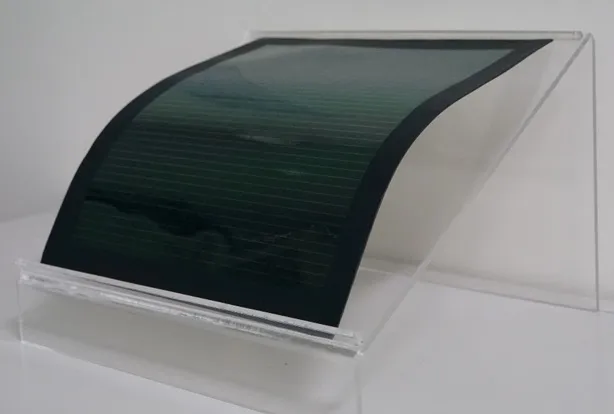Toshiba reaches 15.1% power conversion performance for polymer film-based perovskite modules
- Japanese corporation Toshiba stated it has developed a new covering approach that boosts the power discussion performance of huge, polymer film-based perovskite modules to a brand-new high.

The record 15.1% performance was attained for a 703cm2 module thanks to a one-step lens layer technique that utilizes better ink, movie drying out processes and also production devices to create a consistent perovskite layer.
This process cuts in half the actions for deposition of the perovskite layer and also elevates the finish rate to a rate that satisfies automation requirements, according to Toshiba.
The company said the light-weight and also flexible layout of polymer film-based perovskite modules suggests they can be set up in places where it is difficult to utilize crystalline silicon modules, such as reduced load-bearing roofings and workplace windows.
Toshiba intends to continue its study on perovskite modules, with a goal of raising the production conversion efficiency to 20% or more and also enlarging the energetic area to 900cm2, the dimension it said is needed for useful application.
The firm's perovskite development comes after Japan's head of state, Yoshihide Suga, said last year that the country would advertise the research and development (R&D) of next-generation solar innovations as part of initiatives to reach web zero by 2050.
Somewhere else, the United States Department of Energy just recently allocated US$ 40 million for 22 R&D projects focused on perovskite products and also a further US$ 3 million to support start-ups scale the industrial production of perovskite modern technologies.
There has actually also been a host of lately released research study into perovskites, consisting of a project in Australia that increased the power conversion effectiveness of perovskite cells with the use of hair trimmings. Researchers in the UK, meanwhile, found that perovskite materials' life expectancy can be expanded from much less than a month to more than 4 months if they are saved at reduced temperature levels.
Also read

